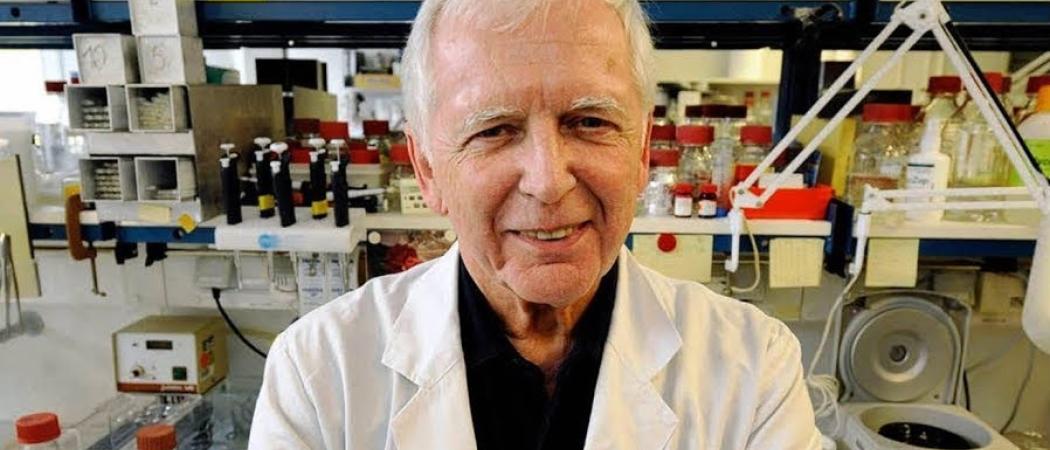The European Commission has announced the names of the people to lead the five research missions in Horizon Europe

Harald zur Hausen received the Nobel Prize in medicine in 2008
Nobel laureate Harald zur Hausen, the scientist who discovered viruses cause some types of cancer, is to lead the EU’s research mission on cancer under Horizon Europe, Commissioner for research and innovation Carlos Moedas announced in Helsinki today.
Zur Hausen and four other mission board chairs will now set out targets and timelines for each research mission, with proposals due to be submitted by the end of the year.
Former EU commissioner for climate action Connie Hedegaard will lead the research mission on tackling climate change. Hanna Gronkiewicz-Waltz, former mayor of Warsaw, heads the mission on climate-neutral and smart cities, while former Dutch agriculture minister, Cees Veerman, is responsible for soil health and food. Meanwhile, Pascal Lamy, former trade commissioner and director-general of the World Trade Organisation will chair the board of the research mission on healthy oceans, seas, coastal and inland waters.
The announcement of the research board chairs marks the official launch of work on the five research missions in the next research and innovation programme, Horizon Europe. The missions are supposed to inspire citizens and support and finance research with defined objectives, to help deal with global challenges, such as cancer, climate change, maintaining the health of oceans, making cities climate-neutral, preserving soil and boosting food production.
“The missions will be in good hands with the commitment, drive and leadership that these outstanding individuals will bring,” Moedas said.
Also today, Mariana Mazzucato, professor at University College London and a special advisor to Moedas, presented a new report which sets out what it takes to make missions a success.
In it, she praises the commission for its “bold strategic approach” but warns that further investment and political commitment is needed to achieve the hefty goals of the missions. “We should beware that without new capabilities and financing structures, missions will not reach their full potential,” Mazzucato said.
Boosting commitment in member states
The hype around missions and calls for budget boost for research and innovation are not equally spread in all EU member states. The upcoming debate over the future budget of the EU could hold back ambitious research targets, unless more member states commit to increasing spending on science and innovation, potentially at the expense of other EU programmes, such as agriculture subsidies and EU’s cohesion policy.
Speaking at the first informal meeting of EU science and competitiveness ministers under the new Finnish presidency of the EU Council today, Moedas urged ministers to convince their governments to support a higher EU budget for innovation. “This is the time when your political weight as ministers in your own countries has to be shown,” he said.
“The next [EU budget] will be about exactly making those choices. Is the next [EU budget] about investing more in innovation and science, or not?”





 A unique international forum for public research organisations and companies to connect their external engagement with strategic interests around their R&D system.
A unique international forum for public research organisations and companies to connect their external engagement with strategic interests around their R&D system.